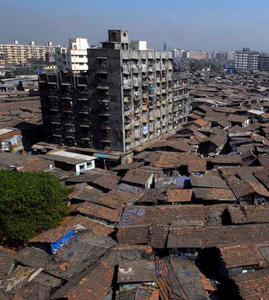Babar Mumtaz ~ How To Make Housing Affordable For The Urban Poor
Cheaper or new building materials don’t go far enough to tackle the housing problem in cities, says Babar Mumtaz.
In countries of the global North, urban ‘affordable housing’ means unaffordable housing subsidised by the state (formerly called social or public housing). But this cannot be the answer where public funds are scarce and are often misused.
So in the South, ‘affordable housing’ has to be what people and society can pay for — but it also has to be housing that is adequate and acceptable.
The question is, why does inadequate housing persist? One reason, of course, is peoples’ low incomes.
In many developing countries, even though over 80 per cent of homes are owner-occupied, low incomes mean that the houses are inadequate — as evidenced by the slums and squatter settlements that have come to define cities in the South.
So the obvious but radical answer could be to pay people a decent wage. Another answer is to revisit the terms and conditions of conventional housing finance: getting a mortgage is off limits for those without high or proven incomes who either cannot borrow, or cannot borrow enough, to buy the cheapest house on the market.
Microfinance can help with repairs or extensions, but has limited application to housing purchase. A non-conventional model for greater reach and impact might, for example, incorporate short-term, sequential loans for incremental construction, paid off with variable amounts (for example, via mobile phones) using a network of community-based retail agents.
But finance aside, what can be done, and why is it not being done?
Read more: http://m.scidev.net/housing-affordable-urban-poor.html
